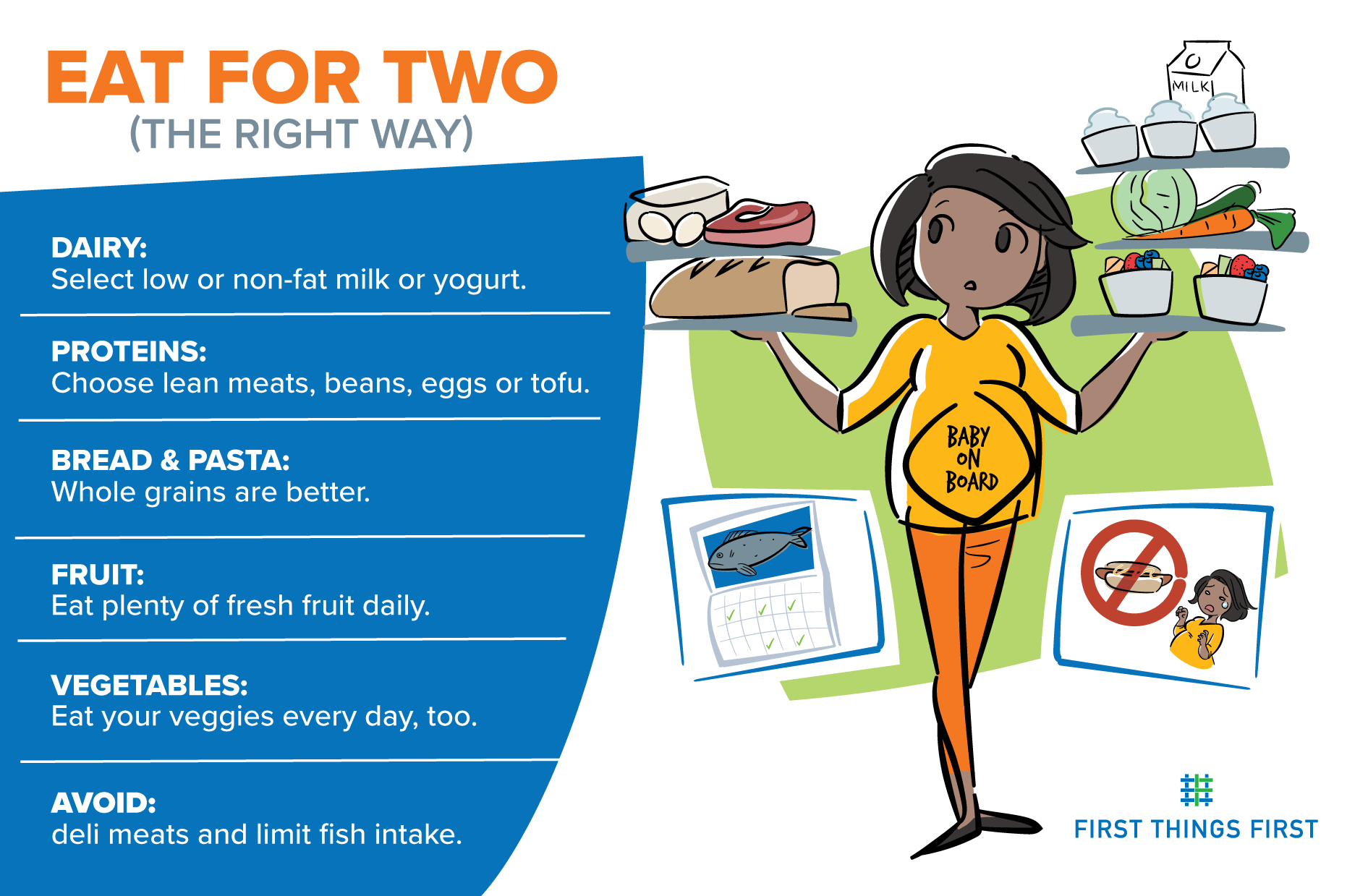
Eight months pregnant, I would stop at my local sushi counter and stare. I love sushi. I love a spicy tuna roll. I love salmon roe. And after so many weeks and months of going without it, I was reduced to staring and dreaming.
My doctor recommended that I avoid eating raw fish during my pregnancy due to the possible health risks, including mercury’s damaging effects on the brain and nervous system of the developing fetus. That kind of warning made it easy to give up these favorite foods, but I was certainly looking forward to getting back in the sushi game when the time was right.
There are a lot of things to avoid taking in when you’re pregnant, with alcohol and cigarette smoke at the top of the list, and other foods to avoid or limit.

To do the best for myself and my baby during pregnancy, I focused on what I should be eating. Good nutrition during pregnancy is one of the best gifts you can give your baby.
A woman’s body is quite literally building an entire human being during pregnancy, and just about everything you take in is passed through to your baby. You need a balanced diet with all of the things that best support the human body – mainly proteins, carbohydrates, fats, vegetables, fruits, vitamins and minerals. The good stuff, and plenty of it. The American Academy of Pediatrics recommends that you “consume about 300 more calories per day than you did before you became pregnant. You need these extra calories and nutrients so your baby can grow normally.”
- Most women need 80 grams or more of protein every day for a healthy pregnanc y. Some research shows it can lower the risk of preeclampsia and other complications, and it can also help reduce morning sickness.
- Getting enough quality fats is the often the biggest hurdle toward a healthy, balanced diet during pregnancy, but it’s vital to baby’s organ and brain development. Focus on healthy sources of fat like meat, butter, eggs, olive oil, coconut oil, nuts and dairy.
- Vegetables and fruits have a variety of vitamins, minerals and fiber that are helpful during pregnancy. Eating a varied diet including a lot of green leafy vegetables can also help raise levels of vitamin K, which is essential for a lot of bodily functions.
- And you have to drink water. A woman’s blood volume actually increases during pregnancy and her body has to supply fluid to replenish the amniotic fluid the baby is in. Drinking water—about a gallon a day—will make sure mom and baby are properly hydrated, and it can also help fight off morning sickness and constipation.
Be sure to check with your healthcare provider about good nutrition and prenatal care during pregnancy. That’s really important.Take it one healthy day at a time, and always remember that you’re literally eating for two. That’s great motivation to get the nutrition you both need and skip the stuff you should avoid. It’s all about doing your best for your child. And a month or so later, with my healthy baby boy in tow, that first post-pregnancy spicy tuna roll was extra delicious and definitely worth the wait.

